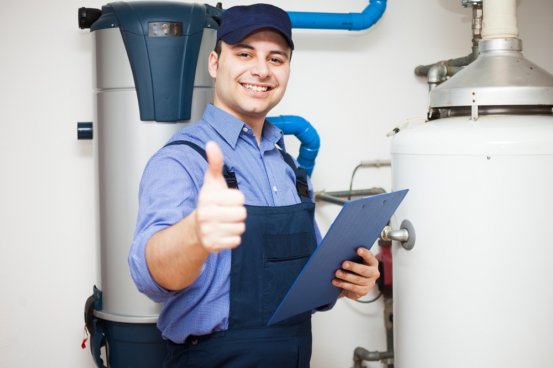
Heat pumps take heat from the ground, water or air and use that for space heating and heating up water as well. Where a fridge works by taking the heat from your food and water and removing it, while heat pumps take the heat from the ground itself or water and air and pump it into your home to keep it warm.
Heat pumps don’t always work great in most homes however, since they usually have the best efficiency in insulated buildings and may also be a pretty good choice when you’re building a new home as well. If you hope that using a heat pump will help lower the heating costs of your home, this may not be the case if you plan on replacing a gas boiler, for instance. If you are currently heating your home with electricity, oil or LPG, then you may have greater results overall and an easier time financially.
If you want to install a ground source heat pump, then you have to have plenty of space around your property if you want to achieve that. The space will be necessary for all the pipework that becomes part of it, buried underground to make it happen. It may also be installed using a borehole, but that will cost you more in the end. You will also have to have suitable locations for your drilling machinery if you want to make it happen. Air source heat pumps will end up taking less space, but you still need to have a good bit of distance away from your neighbouring homes and space to do so.
Heat pumps can help heat up water to a lower overall temperature than most traditional boilers, so you would do well to ensure you have a very well insulated home with good floor heating. You can make use of a heat pump with radiators involved, but you will need to use a larger set of them if you want to reach a good level of heating involved. A lot of the older buildings are not really good enough in terms of energy efficiency so they can use floor heating for low temperature radiators.
A traditional boiler with a hot water cylinder will heat up to 60°C or even higher. Using a heat pump will allow you to heat your water easily, but the hotter you make it, the more power it will require to make it happen, so you may want to keep the temperature around 50°C. Boosting it all the way to 60°C once a week will allow you to keep legionella away, which are pathogenic bacteria that happen to grow in such water sources with the right conditions. In many cases heat pumps come with an integrated immersion heater as well.
Since they tend to take up less space, air heat pumps will better serve urban areas and apartments, especially where there is no gas supply at the ready or when they need to replace electric heating. Installing one after a major house clearance initiative will work well, since you will have the most space for it. You also need to consider the chance of hiring a clearance company that works for junk clearance, furniture clearance and more.
This post is by Guest Energizer Sofia Lewis for Rubbish Waste Ltd. who offer house clearance, recycling, rubbish collection. She is a passionate freelance article writer and blogger. She is inspired by home improvement projects and writes mainly about waste removal, cleaning, green living home solutions, removals and other home related topics.
